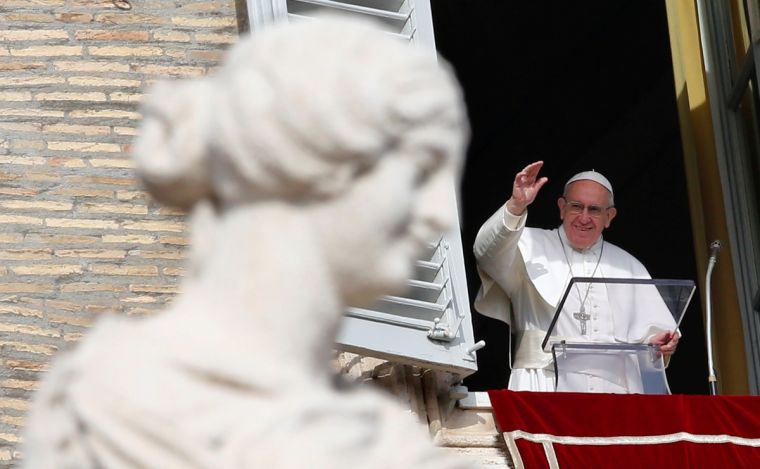The work of Satan? How Pope Francis speaks truth to the 'fake news' crisis
Pope Francis made headlines again this week as he aligned 'fake news' with the work of Satan, the 'Father of Lies' who first authored 'fake news' in the Garden of Eden. The Pope promoted instead a 'journalism of peace' that provides truth and community formation, not harmful disinformation. It was a thoughtful address that got beyond the pejorative sloganising that can define discussion of 'fake news', and gets to the crisis at its core – the corruption of the human heart.
Communication is essential to our humanity, Francis said, but it can be used for good or ill. 'Pride and selfishness' can distort the possibility of truth-telling, he said, pointing to the biblical stories of Cain and Abel and the ambitious aspirations of the Tower of Babel.
'The capacity to twist the truth is symptomatic of our condition, both as individuals and communities. On the other hand, when we are faithful to God's plan, communication becomes an effective expression of our responsible search for truth and our pursuit of goodness,' the pontiff told his audience yesterday.

It was an appropriate address for the 52nd World Day of Social Communications, particularly in a climate when 'fake news' has become a defining theme of the political moment. It's also an abuse term frequently hurled by President Trump at news organisations who criticise him. As Jason Horowitz suggested at the New York Times, Francis may have missed a beat by not naming more specifically Trump's approach, which is concerned not with 'fake news' itself but in the use of the term to discredit those who are committed to truthful but sometimes uncomfortable reporting.
Horowitz noted that Francis seemed to unhelpfully conflate 'fake news' as deliberate disinformation with what is simply sensationalist journalism, a lack of distinction that can serve those who wish to denigrate a free press. Francis did note however the corrosive effect of 'untruth' in the media, which demonises neighbours into distant enemies, exploits human 'anxiety, contempt, anger and frustration' and in its polarising nature spreads only 'arrogance and hatred'.
The human receptivity to lies and half-truth goes back to Genesis, Francis said, with the crafty lies of the tempting serpent, whose '"deconstruction" then takes on an appearance of truth,' that tragically ushered in the fall of humankind.
Battling the viral influence of untruth then requires the utmost discernment. Francis said: 'The economic and manipulative aims that feed disinformation are rooted in a thirst for power, a desire to possess and enjoy, which ultimately makes us victims of something much more tragic: the deceptive power of evil that moves from one lie to another in order to rob us of our interior freedom. That is why education for truth means teaching people how to discern, evaluate and understand our deepest desires and inclinations, lest we lose sight of what is good and yield to every temptation.'
Deep truth, the pontiff said, is not simply concerned with impersonal knowledge of facts but a relational reality that connects human beings invites their trust, listening and through this, their flourishing. Herein lies the 'journalism of peace': 'The best antidotes to falsehoods are not strategies, but people: people who are not greedy but ready to listen, people who make the effort to engage in sincere dialogue so that the truth can emerge; people who are attracted by goodness and take responsibility for how they use language.
'Amid feeding frenzies and the mad rush for a scoop, they [journalists] must remember that the heart of information is not the speed with which it is reported or its audience impact, but persons. Informing others means forming others; it means being in touch with people's lives.'
The pontiff's emphasis on 'formation' over simply 'information' is both catchy and profound. 'Fake news' has in many ways only been made possible by the disconnected and increasingly fragmentary nature of public discourse: its polarising silos allow popular 'untruth' to flourish and it ultimately denigrates humanity by poisoning trust and relationship. Its disinformation starves us of true knowledge but also divides us from our neighbour. Theologically of course, this has long been understood as part of humanity's primordial fall from grace – not only do we not know what's true, we don't know each other.
He may be 81, but this unprecedentedly media-savvy pope knows the promise and pitfalls of modern communication well. The double casualty of 'fake news' is tragic, but contemporary dialogue isn't dead just yet. Pope Francis has offered a timeless word to the wise: 'The truth will set you free' (John 8:32).











